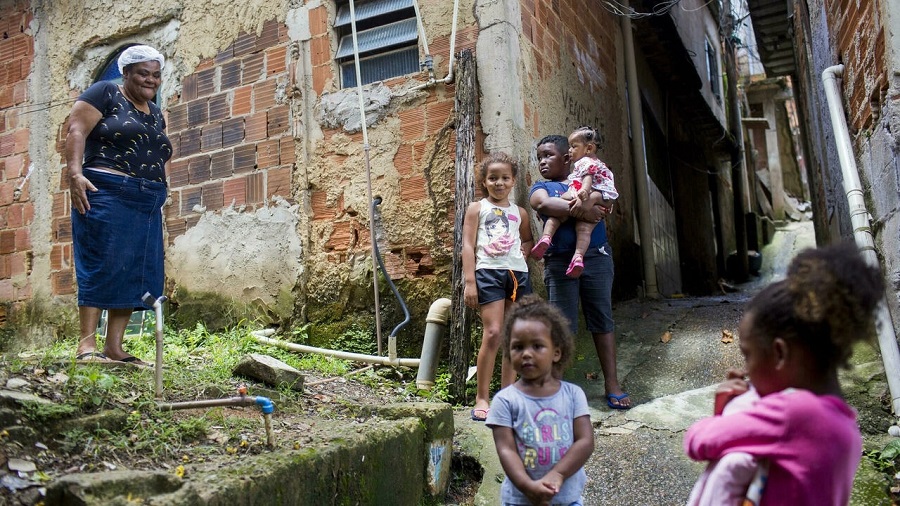RIO DE JANEIRO, BRAZIL – Hunger is affecting a growing number of families in Brazil and donations from NGOs are critical as the holiday season nears, in a country where almost a quarter of its 213 million inhabitants are food insecure, according to the United Nations.
“The little I received will be shared” with the rest of the family, says Rita, a resident of Duque de Caxias, a poor suburb north of Rio de Janeiro.

Widowed for 3 years, the 59-year-old black woman lives alone in a small brick house in the hilltop favela of Morro de Garibaldi.
Rita struggles to walk because of her diabetes and is barely able to follow a diet appropriate to her illness: “I need a healthy diet, but what I earn is not enough,” she laments.
Unemployed for 6 years, this woman lives on the R$100 (US$19) she receives in social benefits. And to feed herself she depends virtually exclusively on donations from NGOs.
Her son died 5 years ago and she has a 38-year-old daughter, 2 granddaughters and soon 3 great-grandchildren with twins due to be born soon. However, she often spends Christmas alone or with her sisters who live in the neighborhood.
HUNGER RETURNS
When NGO Amac supplied her with a staple food basket for the holidays, she welcomed it with open arms and a huge sigh of relief.
Amac is one of the organizations involved in the “Christmas Without Hunger” campaign, which has already distributed over 1,500 tons of food this year-end, enough for about 8 million meals.
Launched in 1994 by NGO Ação da Cidadania, this annual campaign was suspended in 2007, when hunger ceased to affect so many families in Brazil.
At the time, leftist president Luiz Inácio Lula da Silva (2003-2010) took advantage of the favorable economic situation – derived from the commodities boom – to implement social policies that helped lift millions of people out of poverty.
“We resumed the Christmas Without Hunger campaign in 2017 because we perceived an increase in hunger and since then the campaign has only grown,” says Ação da Cidadania executive director Rodrigo Afonso.
The situation was further aggravated in recent months by the coronavirus pandemic and rampant inflation, with shocking images of hungry people eating bones with meat scraps left in dumpsters.
“ONE MEAL A DAY”
Maria Elena Huertas Rosales, a 50-year-old Peruvian living in Nova Iguaçu, a neighboring town of Duque de Caxias, also benefits from the campaign.
“With the pandemic, we started having only one meal a day because everything is so expensive,” says this mother who migrated to Brazil in 2009 with her husband and son.
“I only get to see meat on TV. We always wonder, ‘What are we going to eat tomorrow,'” she recounts.
In a recent UN report “The State of Food Security and Nutrition in the World,” the chapter dedicated to Brazil is alarming.
From 2018 through 2020, about 50 million Brazilians “stopped eating due to lack of money or had a significant reduction in the quality and quantity of their food intake,” according to the report.
If all public policies “were implemented, the population would not be going hungry and grabbing bones in the street,” it states.

